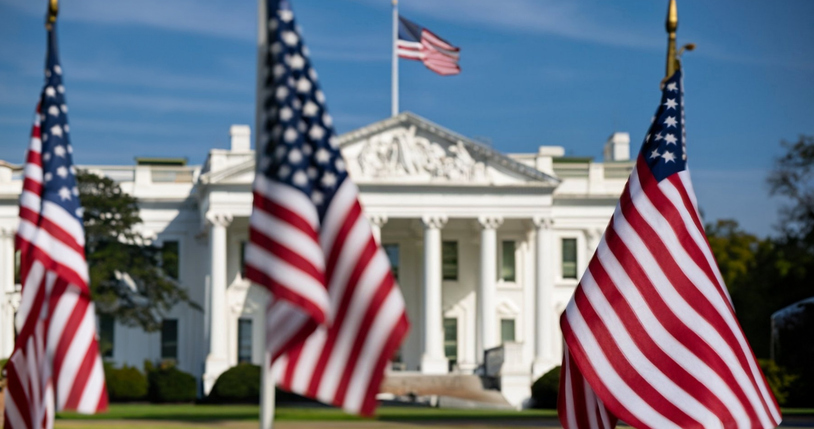
In the intricate world of international finance, privacy stands as a paramount concern for investors and business owners seeking to navigate the global market. Grenada, with its lush landscapes and vibrant culture, emerges not only as an idyllic Caribbean getaway but also as a bastion of banking privacy for foreign investors. The country’s commitment to safeguarding the financial information of its international clientele has positioned it as a fortress of confidentiality in the offshore banking world.
This article delves into the heart of Grenada’s banking privacy regulations, illuminating how these laws protect foreign investors and enhance their financial security. By understanding Grenada’s legal framework and the scope of privacy it offers, international clients can confidently engage with the island’s banking sector, assured that their financial secrets are well-guarded. Whether you’re looking to open a bank account, invest in the local economy, or simply explore the tax benefits available, Grenada’s banking privacy laws are designed to support your financial ambitions while ensuring utmost discretion.
Grenada’s Legal Framework for Banking Privacy
Grenada’s commitment to banking privacy for foreign investors is underpinned by a robust legal framework that meticulously governs the protection of financial information. This framework is composed of several key laws and regulations, ensuring that the privacy of international clients is upheld within the banking sector. Understanding these legal foundations is crucial for investors seeking to navigate Grenada’s financial landscape with confidence.
Key Laws and Regulations
Banking Act: The cornerstone of Grenada’s banking privacy regulations, the Banking Act, establishes the basic principles of confidentiality in banking. It mandates that banks and their employees safeguard client information, prohibiting unauthorized disclosure of account details, transactions, or personal data without explicit consent from the account holder or a legal requirement.
Data Protection Act: Complementing the Banking Act, the Data Protection Act outlines the responsibilities of financial institutions in managing and protecting personal data. It sets standards for data collection, storage, and processing, ensuring that personal information is handled with the highest levels of security and privacy.
International Cooperation Act: This act details Grenada’s approach to international cooperation in financial matters, including how it balances the need for privacy with obligations to combat money laundering, terrorism financing, and tax evasion. It specifies the conditions under which information may be shared with foreign governments or international regulatory bodies, always with a focus on maintaining client confidentiality to the greatest extent possible.
Protecting Foreign Investors
The legal framework in Grenada is designed not only to protect the privacy of domestic banking clients but also to extend these protections to foreign investors and businesses. By establishing clear guidelines and responsibilities for financial institutions, Grenada assures international clients that their financial secrets are safeguarded against unwarranted scrutiny.
Upholding International Standards
While prioritizing privacy, Grenada’s laws also ensure compliance with international standards and best practices in financial regulation. The jurisdiction actively participates in global efforts to ensure financial stability and integrity, aligning its privacy regulations with international norms to prevent abuse of the financial system.
Grenada’s legal framework for banking privacy provides a secure foundation for foreign investors looking to benefit from the island’s financial services. By navigating this framework, international clients can leverage Grenada’s banking sector for their financial management and investment needs, assured that their privacy is protected by comprehensive and enforceable laws.
The Scope of Privacy for Foreigners in Grenada’s Banks
In Grenada, banking privacy isn’t just a policy; it’s a commitment to securing the financial information and transactions of foreign investors, ensuring that their economic activities on the island are shielded from undue exposure. The scope of this privacy is broad, covering various aspects of financial operations and extending comprehensive protections to international clients engaged with Grenada’s banking sector.
Financial Information Protection
At the core of banking privacy in Grenada is the protection of financial information. This includes account balances, transaction details, investment activities, and any other data that could reveal the financial status or strategies of the client. Banks are mandated to implement stringent security measures to prevent unauthorized access to such information, ensuring that only the account holder and designated bank personnel have access.
Transaction Confidentiality
Every transaction processed through Grenadian banks enjoys a high degree of confidentiality. Whether it involves the transfer of funds, payment of services, or investment purchases, the details of these transactions are closely guarded. This confidentiality is critical for foreign investors who require discretion for strategic financial movements or those seeking to maintain privacy in their financial dealings.
Identity Anonymity
For foreign investors, the assurance of identity protection is a key aspect of Grenada’s banking privacy. Personal information, including names, addresses, and identification numbers, is treated with the utmost care, used only for internal verification purposes and never disclosed without consent. This level of anonymity is especially important in an era where identity theft and financial fraud are prevalent risks.
Compliance with Privacy Regulations
Banks in Grenada operate within a strict regulatory framework that demands compliance with both local and international privacy standards. This includes regular audits, staff training on privacy policies, and the adoption of advanced technologies to safeguard client data. The regulatory bodies overseeing financial operations ensure that banks adhere to these standards, providing an added layer of protection for foreign investors.
Limitations and Legal Disclosures
While the privacy of banking clients is a priority, there are situations under which disclosure of financial information may be legally required, such as court orders or international agreements on financial crimes. However, these disclosures are tightly controlled, ensuring that any sharing of information is conducted with minimal impact on the client’s privacy and strictly for lawful purposes.
The scope of privacy offered to foreigners in Grenada’s banks is a testament to the island’s dedication to creating a secure and confidential financial environment. For international clients, this commitment to privacy enhances Grenada’s appeal as an offshore banking destination, where financial activities can be conducted with confidence and peace of mind.
Compliance and International Cooperation
Grenada’s banking sector is not only characterized by its stringent privacy laws but also by its commitment to international compliance and cooperation. This dual focus ensures that while the privacy of foreign investors is protected, Grenada also adheres to global standards aimed at preventing financial crimes such as money laundering, terrorism financing, and tax evasion. Understanding how Grenada balances these priorities is essential for foreign investors navigating the banking landscape.
Adherence to Global Standards
Grenada is a participant in various international agreements and adheres to standards set by organizations such as the Financial Action Task Force (FATF) and the Global Forum on Transparency and Exchange of Information for Tax Purposes. These commitments require Grenada to implement and enforce regulations that combat financial crimes and facilitate transparency in tax matters, ensuring the integrity of its financial system on the global stage.
Mechanisms for Information Sharing
While Grenada’s privacy laws are robust, they also provide mechanisms for legal and regulated information sharing under specific circumstances. This includes cooperation with international bodies and foreign governments in investigations related to financial crimes or tax matters. Information sharing is conducted through established legal channels, ensuring that it’s done in a controlled manner, with respect for the privacy rights of banking clients.
Safeguarding Client Privacy
Despite these international obligations, Grenada takes significant measures to safeguard the privacy of its banking clients, especially foreigners. The legal framework ensures that any information sharing is necessary, proportionate, and subject to strict confidentiality protocols. This approach maintains the privacy of client information while fulfilling international cooperation commitments.
Regular Review and Updates
Grenada regularly reviews and updates its laws and regulations to align with evolving international standards and best practices. This ongoing process ensures that the country remains a competitive and compliant jurisdiction for offshore banking, capable of protecting client privacy while actively participating in the global fight against financial crimes.
Building Trust Through Compliance
Grenada’s adherence to international compliance and cooperation standards plays a crucial role in building trust among foreign investors. It signals that the island is not only a safe haven for privacy but also a responsible member of the international financial community. This balance enhances Grenada’s reputation as a reliable and attractive destination for banking and investment.
The commitment to compliance and international cooperation underscores Grenada’s dedication to maintaining a banking sector that is both secure and respectful of privacy. For foreign investors, this commitment ensures that Grenada remains an ideal location for conducting financial activities with confidence, benefiting from both privacy protections and the assurance of a compliant banking environment.
Challenges and Limitations of Banking Privacy
While Grenada offers a robust framework for banking privacy, it’s important for foreign investors to be aware of the challenges and limitations that may impact their financial activities. Understanding these potential hurdles can help investors navigate Grenada’s banking sector more effectively, ensuring they can still maximize the benefits of privacy while adhering to legal and regulatory requirements.
Navigating International Compliance
One of the primary challenges in maintaining banking privacy is the need to balance it with international compliance obligations. Grenada’s participation in global initiatives against money laundering, terrorism financing, and tax evasion requires banks to conduct due diligence and sometimes disclose certain client information to international regulatory bodies. Investors must be prepared for these compliance checks, which, while necessary for legal and security reasons, may feel intrusive.
Technological Risks
The rise of digital banking, while offering convenience and efficiency, also introduces risks to privacy. Cybersecurity threats, such as hacking and data breaches, pose significant challenges to maintaining the confidentiality of financial information. Grenada’s banks invest heavily in cybersecurity measures, but investors should remain vigilant and adopt personal security practices to protect their online banking activities.
Understanding Legal Exceptions
Privacy laws in Grenada provide comprehensive protections, but they also include exceptions where disclosure of information is legally required. This might include court orders in legal proceedings or compliance with international tax reporting standards. Investors should be aware of these exceptions, understanding when and how their information may be disclosed under the law.
The Impact of Global Transparency Efforts
The global trend towards financial transparency and information exchange impacts banking privacy. Efforts to combat tax evasion and financial crimes have led to increased information sharing between countries. While Grenada is committed to protecting client privacy, these international agreements necessitate a level of openness that may be perceived as a limitation by those seeking absolute confidentiality.
Maximizing Privacy within Legal Boundaries
Navigating the challenges and limitations of banking privacy in Grenada requires a careful approach. Investors should work closely with their banks and legal advisors to understand how they can maximize privacy while remaining compliant with both local and international regulations. This may involve structuring their banking and investment activities in ways that safeguard privacy without contravening legal obligations.
Grenada’s commitment to banking privacy provides a secure foundation for foreign investors, but it’s essential to recognize and navigate the inherent challenges and limitations. By staying informed and engaging in proactive financial management, investors can enjoy the benefits of Grenada’s banking sector, leveraging its privacy advantages while navigating the complexities of the modern financial landscape.
Interesting Related Article: “8 Benefits Of Banking as a Service (BaaS)“







